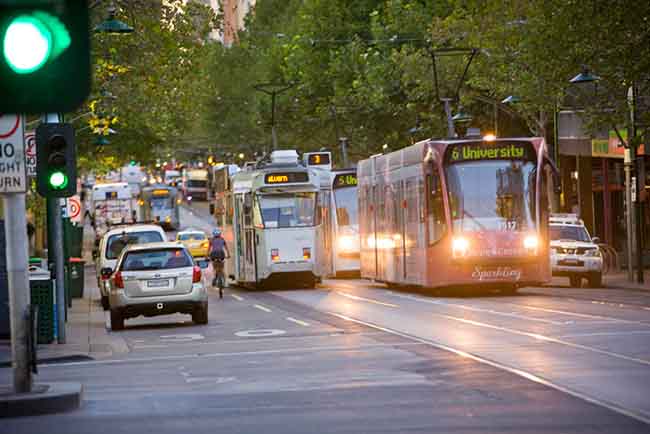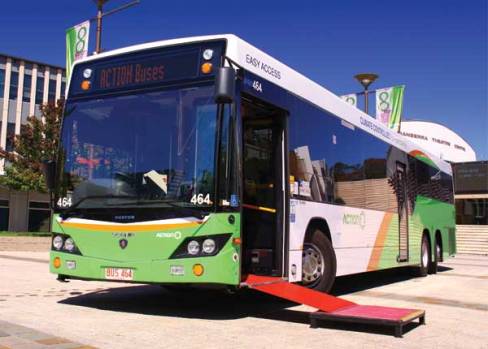
They’ve never been popular with the public, but the days of feeding the humble if often maligned parking meter could soon be numbered thanks to a new breed of payphone.
After decades of desperately searching for change to avoid the dreaded envelope under the windscreen wiper, commuters parking in central Melbourne will soon be dialling their number plate details into their smartphones to pay for the privilege of securing a parking spot.
In a radical departure from rolling out fixed infrastructure, the City of Melbourne has announced it will introduce pay-by-phone technology as a mainstream method of payment for parking by using either a free smartphone app or making a slightly less-free phone call.
Of course, the parking fees themselves will stay long after the meters are gone.
According to the City of Melbourne, the new mobile based system will also feature the ability to send drivers an SMS reminder just before their time in the parking spot is about to expire.
The City claims this will actively reduce their risk of copping a fine for overstaying. It will also reduce the number of potential excuses being made to parking officers seeking out those routinely flouting regulations in the hope of dodging their co-contribution to council revenues.
Traditionally, drivers have been required to display a printed ticket on their dashboard for enforcement rangers to check, but the new phone based system means that the paper age of enforcement will ultimately be superseded by electronic data that is available to council on demand.
That’s because drivers will be expected to not only activate their parking session via the council app or phone call, but also terminate the session when it’s finished an action best completed before driving off to stay on the right side mobile phone laws enforced by police.
Once a parking session has started, parking officers will be able to scan the number plate of a car using their own handheld device and then immediately identify whether a valid paid parking session is active and if payment has actually been made.
It may be accurate, but it also means that drivers generously handing tickets with residual value over to the next parker will have their acts of kindness technologically thwarted.
Another less than street legal activity that the City of Melbourne expects to reduce is the abundance of opportunistic non-paying “risk takers” simply betting they won’t be found out. It reckons opportunistic evasion will be reduced by one per cent, a small decrease that is set to yield a substantial boost in annual parking revenue of $375,000.
The City of Melbourne also appears keen to defy cynics who believe that local governments issue parking fines on the basis of chasing a revenue targets rather than enforcing the law.
A decidedly ironic twist in the new phone-pay parking is that the expected improvement in tariff compliance (people paying) is forecast to translate to a commensurate reduction of infringement revenue (people paying a lot more for not paying in the first place).
The sacrifice of infringement revenue is estimated to be the order of $900,000, a figure unlikely to impress commercial debt collectors.
The move to use phones as a revenue raiser is not unprecedented. The City of Melbourne first embarked on its ambitious plan to make pay parking more convenient when it became the first local government in Victoria to introduce pay-by-phone parking when it launched a trial in the inner city suburb of Carlton in September 2011.
With that trial slated to conclude in April 2014, the council in late February 2014, voted to award a tender valued at $537,000 for the duration of three years to Melbourne-based technology company Database Consultants Australia to deploy the pay-by-phone parking system in more than 12,000 fee-paying bays across the city.
The expense of maintaining parking meters was a key driver in the City’s plan to introduce pay-by-phone technology, as meter maintenance sets the council back $3 million annually.
Meter maintenance costs have been a hot topic across Australia. The Mayor of inner Sydney’s Leichhardt municipality, Darcy Byrne, earlier this year blasted credit card companies over payment security requirements (PCI-DSS) for card-fed parking meters that would force his local government to upgrade their machines to be compliant.
Melbourne’s three-year plan to roll out this pay-by-phone technology mean the City largely dodge that compliance impost because it will reduce the number of parking meter devices from 3,800 to 1,000 over a five year period.
The City has also projected that cost savings on maintenance to be in the order of $300,000 in the second year of the contract.
The chair of the City of Melbourne’s ‘transport portfolio’, Councillor Cathy Oke said that parking meters and ticket machines are both expensive to maintain and susceptible to theft and vandalism.
A big contributor to the high cost of meter maintenance is vandalism, with the City claiming that more than 130 meters in Carlton alone damaged through attempts to steal coins in the past six months.
Ms Oke said existing coin-only machines would be upgraded to modern meters that also accepted credit cards using ‘touch-and-go’ technology.
The City of Melbourne expects that the rollout of pay-by-phone parking will begin in April 2014 and the removal of meters will begin with machines in the centre of the road parking areas in the 2014/15 financial year.
Comment below to have your say on this story.
If you have a news story or tip-off, get in touch at editorial@governmentnews.com.au.
Sign up to the Government News newsletter



I’d recommend they consider the ability to add an extra 10 minutes for an additional fee to the time when they send a 5 minute reminder. This would enable you to finish your meeting, shopping, etc and still get to your car in time and it wouldn’t unduly affect others looking to park.
I think it would also make the vast majority of motorists much happier with the Melbourne City Council and their parking.
Fabulous. You need a smartphone to pay for parking. One more step towards keeping poor people and tourist out.
Another Load of BS.. Smart phones are Crap.. useless friggen things… I just use an ordinary ZTA T54 phone which is Good for calls and nothing more as this internet enabled crap is just a total waste of time and money and so many problems with smart phones not worth a cracker….. whole thing is a revenue raiser …
Database Consultants Australia (DCA)? That is the people behind the infringement processing system and the controversial City of Melbourne in-ground sensors and failed camera car. (Check their website) Why would I sign up directly with the makers of the “civic compliance” technology?
Next the city will be billing my credit card rather than putting a yellow envelope on the windscreen!
Smells like Rat to me.
Some councils around melbourne metro are already using this technology. The issue is they use different provider. Hence different app on the phone for different areas. This will work only if there is one app to use to pay for parking.
I’ve just moved from Auckland where we have txt-to-park no app required and no need to set up an account, just send a txt to the number on the parking meter and the fee just gets put on your phone bill. You get a parking ticket to display in the window – simple (or you use a credit card or cash)
Come to Melb. and I need to buy an Apple or Android phone as my Windows phone is not supported.
Brilliant – NOT!
Oh and just went to the web site. They want to load $5 onto my credit card no indication how I get this back when I leave Melb.
Thanks goodness the trams work.
On one side of Victoria Parade under Melbourne CC we have PayStay. On the other side of Victoria Parade in Yarra CC we have Pay By Phone. This means having two accounts with credits on each account if you want to use the system in both municipalities. Just crazy. Don’t they talk to each other? What if there were dozens of system providers? Would every municipality have its own system?